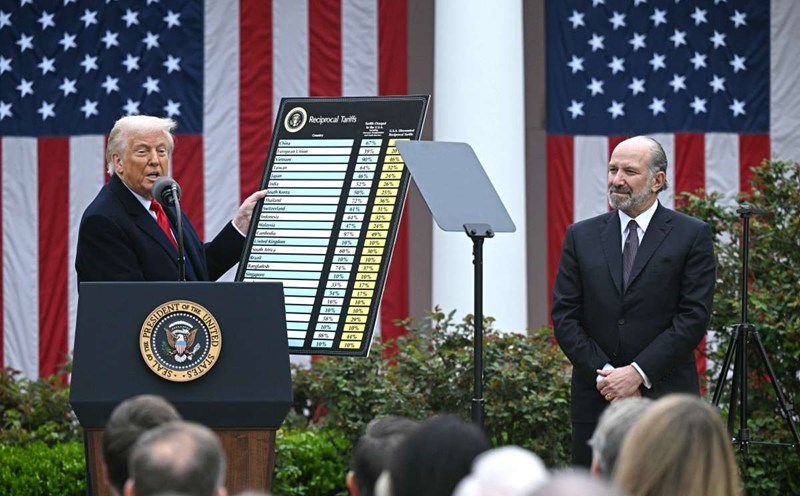The latest announcement of a series of tariffs by US President Donald Trump on goods from Europe has shocked the entire European Union (EU).
On-duty German Chancellor Olaf Scholz called the measures a "serious mistake". Spanish Prime Minister Pedro Sanchez saw it as a "unilateral attack". French President Emmanuel Macron described the move as "unfounded and certain to have a major impact on the European economy".
Mr. Macron has called an emergency meeting with French businesses heavily affected by the 20% tariffs recently imposed by the US on goods from the EU, including wine, ginseng and the aviation industry.
Mr. Macron called on European businesses to temporarily not invest in the US, emphasizing: "What message do we want to send if European corporations continue to pour billions of euros into the US economy while they are taxing us?"
Countries and sectors suffer the most losses
France is affected by wine and aviation; Germany is the auto industry; while Italy is luxury goods. Spain exports many gas turbines and olive oil to the US.
Ireland's 2024 data shows that it is the country most dependent on the US market, exporting goods and services accounting for 20% of GDP - mainly in the pharmaceutical and technology sectors.
Countries such as Cyprus, Luxembourg and Malta are also more vulnerable than the EU average in the service sector. Belgium, the Netherlands and Slovakia are greatly affected in terms of goods.
In the group of major economies, Germany depends more than 5% of GDP on the US, followed by Italy (4%), France (3%) and Spain (more than 2%).

How will the EU respond?
The European Commission - the EU's brain on trade - is coordinating a common response. President Ursula von der Leyen affirmed that the EU has " many cards to play" including both negotiating power and counter-attacking capability.
The US currently accounts for 25% of global GDP, while the EU market with 450 million people accounts for 22% - almost equal.
According to BBC, the EU is fully capable of "collisioning", especially if it targets US services such as Big Tech - including Apple, Meta, Amazon, even Elon Musk's X. However, that also risks triggering a new retaliation from President Donald Trump.
Europe does not want to push the tension higher. Partly because it relies on liquefied natural gas (LNG) from the US after cutting off supplies from Russia. The counter-taxification of LNG could harm EU consumers and worsen the already strained relationship with Washington.
Instead, the EU chose to threaten strong retaliation, hoping to get Mr Trump on the table - and ideally withdrawing tax policy.
What can the EU offer to wear?
The Trump administration has said it will not hold private talks with any country before the tariffs come into effect. But what then?
One of the main reasons for Mr Trump's actions is the trade deficit with the EU - about 200 billion USD in 2024. Meanwhile, the US has a surplus in the service sector. This is where the EU can exploit: putting pressure on US services, especially banking and technology.
In addition, the EU could propose buying more US LNG or weapons - but this conflicts with the promise to support the European defense industry.
Another option is to reduce direct and indirect import tariffs on US goods, or expand agricultural import quotas. However, the EU is unlikely to give in to the requirement to soften digitalization laws - regulations that limit monopoly and control content in cyberspace.











